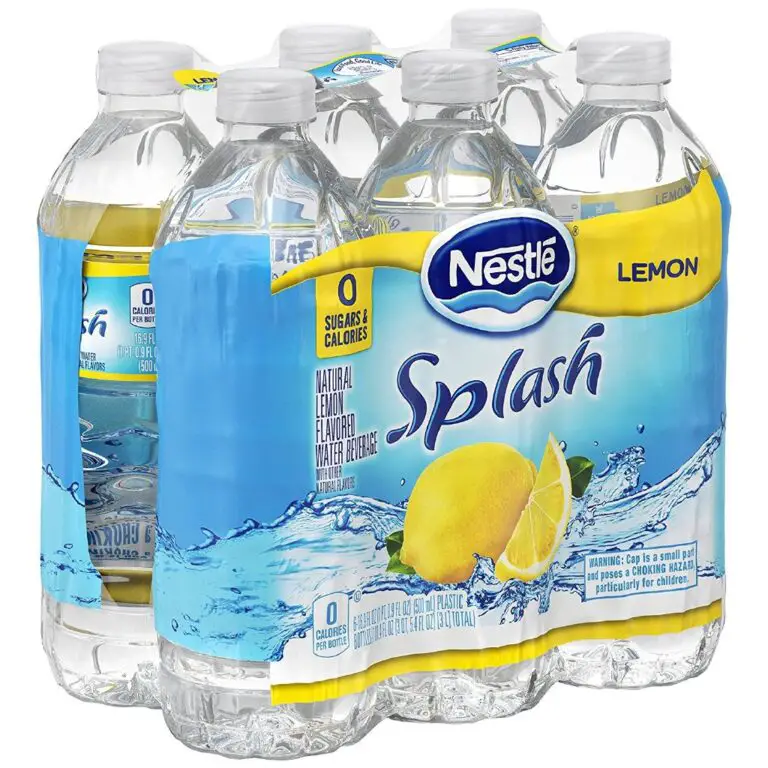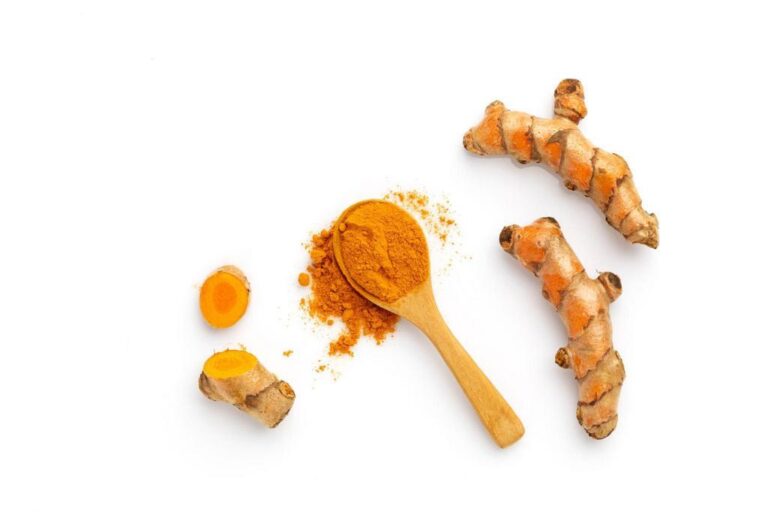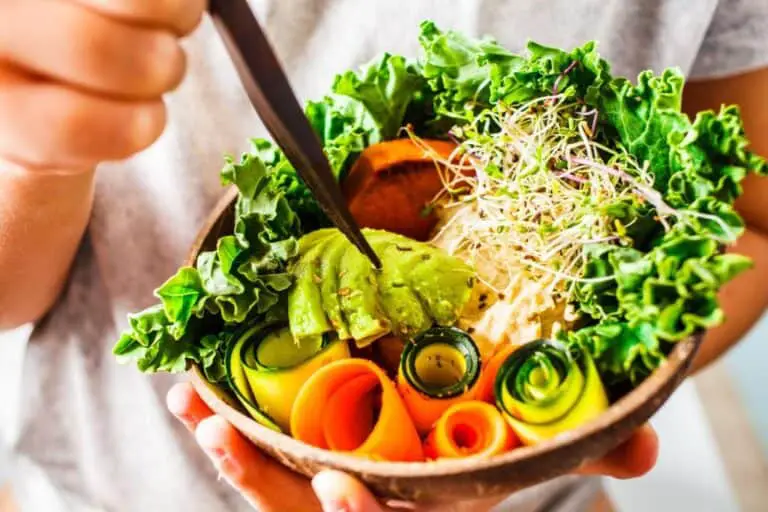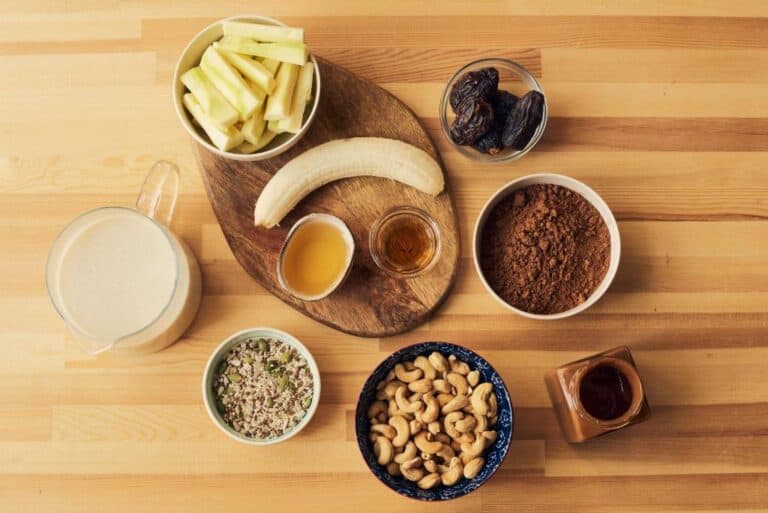10 Foods That Make You Run Faster: Boost Speed and Endurance
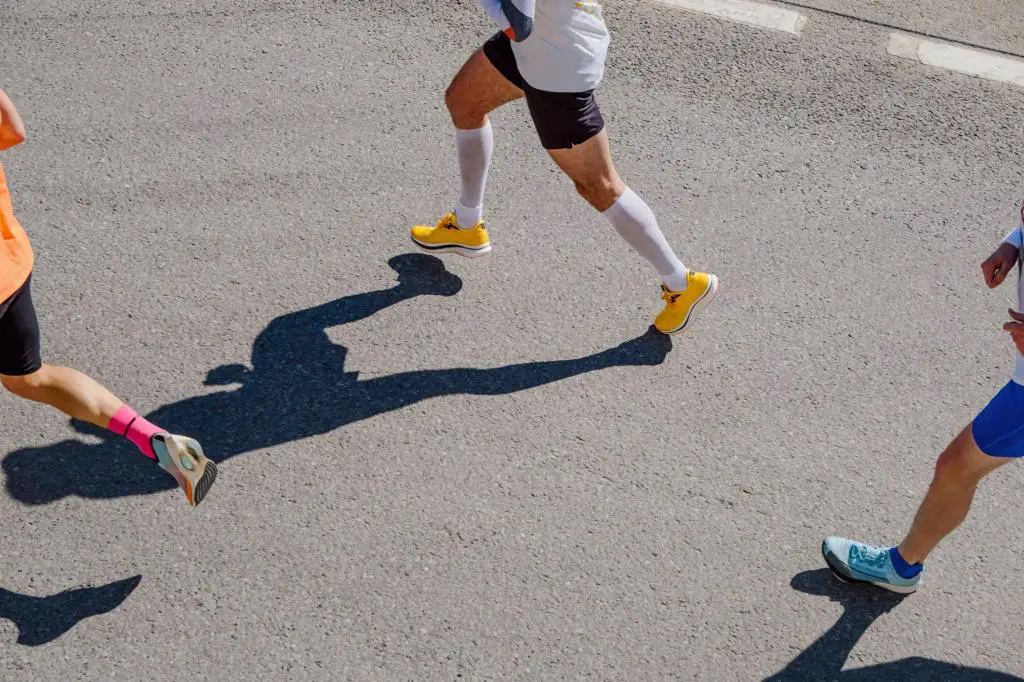
Do you want to know the secret to becoming a faster runner? Finding the right fuel for your body can be the solution.
Get ready to leave your competition in the dust with these top 10 foods that will boost your speed and endurance! From nutrient-dense carbohydrates to anti-inflammatory options, these foods will fuel your runs and help you perform at your best.
In this article, you will find out why different foods can help improve speed and endurance when running. It is essential to have a balanced diet that includes the right carbohydrates, proteins, and fats if you want to stay energized and run your best.
Say goodbye to fatigue and hello to new personal records!
How Foods Affect Speed and Endurance for Runners
For many runners, the right diet is integral to their success and performance. Eating the right foods can help increase speed and endurance, while eating the wrong ones can lead to fatigue, slower recovery times, and reduced energy levels. Understanding how food affects running can help athletes maximize their performance on race day.
The best foods for runners are those that contain a balanced mixture of carbohydrates, proteins, and fats. Carbs give your muscles energy when you work out. Proteins build muscle mass, and healthy fats help your body absorb nutrients and digest food, as well as give you long-term energy.
It’s also worth mentioning that hydration is key for runners, as it helps to regulate body temperature and transport nutrients to the muscles. During intense training, you need to stay hydrated by drinking water and electrolyte-rich drinks like coconut water.
In addition to the above, post-run recovery foods are also important for runners because they aid in muscle repair and refueling after a workout. Greek yogurt, cottage cheese, and chocolate milk are all great options for post-run recovery, as they are high in protein, carbohydrates, and essential nutrients that help replenish glycogen stores, repair muscle tissue, and provide essential nutrients for the body.
Overall, runners need a balanced, varied diet that includes carbs, protein, and healthy fats, as well as fruits, vegetables, and water, to perform at their best and stay healthy.
10 Foods That Make You Run Faster: Boost Speed and Endurance
1. Oatmeal
Oatmeal is a whole-grain food that is made from rolled or ground oats. It is a popular breakfast food that is known for its high carbohydrate content, which provides energy for running faster.
Carbohydrates are important for athletes because they are the body’s main source of energy when they are working out hard.
Our body converts carbohydrates into glucose, which is then used to produce energy for the muscles during exercise.
Oatmeal is also a good source of dietary fiber, which helps to slow down the digestion of carbohydrates and provide a steady release of energy throughout the day.
In addition to providing energy, oatmeal is also rich in antioxidants. Antioxidants are compounds that help to neutralize harmful free radicals in the body. Free radicals are molecules that can cause damage to cells and contribute to inflammation.
Inflammation in the body can be reduced by eating foods high in antioxidants. This is important for runners because inflammation can cause injuries and slow them down. Oatmeal is high in antioxidants like avenanthramides, which are specifically found in oats and have anti-inflammatory properties.
Another benefit of oatmeal for runners is its satiety. Oats are high in fiber and protein, which makes them a filling food that can help prevent overeating and weight gain.
Oatmeal also has a low glycemic index, which means that it does not cause a rapid spike in blood sugar levels. This makes it a good option for runners who are looking to maintain stable energy levels throughout the day.
2. Spinach
Spinach is a highly nutrient-dense food that is a great choice for runners looking to improve their performance. The iron found in spinach is a key component of hemoglobin, the protein in red blood cells that carries oxygen throughout the body. Spinach is an important food for runners because it helps get more oxygen to the muscles, which helps them run faster, longer, and better.
Spinach has a lot of iron, but it also has a lot of Vitamin K, which is an important part of how the body uses iron. Vitamin K helps to activate a protein called osteocalcin, which helps to bind calcium to the bones.
Runners can make sure their bodies get the most out of the iron they eat by eating spinach. This helps the body transport oxygen better and improves endurance.
Spinach is also a great source of other important nutrients for runners, including Vitamin C, Vitamin A, and Vitamin E. These vitamins are powerful antioxidants that help to reduce inflammation in the body, which can be caused by intense exercise.
Inflammation can make muscles hurt and make you tired, so eating foods like spinach that are high in antioxidants can help runners recover faster and do better.
Spinach is also a low-calorie food, which means that it can be consumed in large quantities without adding extra weight. Runners should aim to include spinach in their diet on a regular basis, whether it be in a salad, smoothie, or as a cooked side dish. Overall, spinach is a nutrient-rich and versatile food that can help runners achieve their performance goals.
3.Quinoa
Quinoa is a grain that is considered to be a “complete protein.” This means that it has all of the essential amino acids that the body needs but can’t make on its own. This makes it a great source of protein for runners, as it helps with muscle repair and recovery after intense training or racing. One cup of cooked quinoa contains about 8 grams of protein.
In addition to its high protein content, quinoa is also a good source of carbohydrates. Carbohydrates are the primary energy source for running and other endurance activities. They are broken down into glucose, which is then used by the muscles for energy.
Quinoa is also a complex carbohydrate, which means that the body breaks it down slowly, giving you a steady stream of energy for running faster and longer. One cup of cooked quinoa contains about 40 grams of carbohydrates.
Quinoa also has other important nutrients like fiber, magnesium, and iron that are good for runners. Fiber can help regulate digestion and prevent constipation, magnesium is essential for muscle and nerve function, and iron is essential for oxygen transport in the body.
Quinoa can be easily incorporated into the diet; it can be used as a side dish or as a base for salads, soups, and stews. It can also be used as a substitute for rice or other grains in many dishes.
4. Berries
Berries like blueberries, raspberries, and strawberries are not only tasty, but they are also full of nutrients that runners need. One of the main benefits of consuming berries is their high antioxidant content.
Antioxidants are chemicals that help get rid of harmful free radicals in the body, which can cause inflammation and damage to cells. This can be especially beneficial for runners, who put a lot of stress on their bodies through regular training and running.
Berries are also a good source of vitamin C, which is important for a healthy immune system. Vitamin C helps to support the production of white blood cells, which are key in fighting off infections and illnesses.
Additionally, berries contain flavonoids, which are a type of antioxidant that has been shown to improve blood flow and reduce muscle damage. This can help runners recover faster after training or races. Berries are also low in calories and high in fiber, which makes them a great choice for runners who are looking to maintain a healthy weight while still getting the nutrients they need. Berries can be eaten on their own as a snack, added to a smoothie, or mixed into oatmeal or yogurt.
5. Greek Yogurt
Because it has a lot of protein and calcium, Greek yogurt is a favorite food of runners and other athletes. Protein is essential for muscle repair and recovery, and is especially important for runners, who are constantly breaking down muscle fibers through training. Greek yogurt is a great source of protein, with one cup containing around 15-20 grams of protein.
Calcium is also important for runners because it helps maintain strong bones, which can be stressed during exercise. Greek yogurt is also a good source of calcium, with about 20% of the daily value in one cup.
In addition to its high protein and calcium content, Greek yogurt is also a good source of carbohydrates. Carbohydrates are the primary energy source for running faster and other endurance activities. They are broken down into glucose, which is then used by the muscles for energy. Greek yogurt contains around 12–15 grams of carbohydrates per cup.
Greek yogurt is also low in fat, so it can be a healthy choice for runners who want to eat well. It can be eaten as a snack or dessert, or added to smoothies, dips, and dressings.
It’s worth mentioning that Greek yogurt also contains probiotics, which can help to support gut health, which is important for overall health and well-being.
6. Eggs
Eggs are a good food for runners because they have a lot of protein, which is needed to repair and rebuild muscles. Protein also helps to build and maintain muscle mass, which is important for runners,as strong muscles are crucial for efficient running.
In addition to protein, eggs are also a good source of vitamin D, which is important for healthy bones. Vitamin D makes it easier for the body to absorb calcium, which is needed to build and keep strong bones. Low levels of vitamin D can lead to a higher risk of bone fractures, making it an essential nutrient for runners.
Eggs are also a good source of choline, which is an essential nutrient that is important for brain health. Choline is needed for the production of acetylcholine, a neurotransmitter that is responsible for memory, mood, and other cognitive functions. A diet that is low in choline can lead to memory and mood disturbances, which can affect running performance.
In addition to the above, eggs are also a good source of other essential nutrients such as vitamin B12, vitamin B6, vitamin B2, and vitamin B5. Eggs are also a good source of healthy fats, which can help keep the body fueled during long runs. Overall, eggs are a great food for runners, as they provide a good balance of essential nutrients that are important for running performance.
7. Nuts and Seeds
Nuts and seeds are a great snack option for runners due to their high protein and healthy fat content. Protein is important for muscle repair and recovery. It’s especially important for runners, whose training constantly breaks down their muscle fibers. Nuts and seeds are a great source of protein, with a small handful containing around 5-7 grams of protein.
Healthy fats, like monounsaturated and polyunsaturated fats, are important for runners because they give them energy, help make hormones, and keep cells working well. Nuts and seeds are also a good source of healthy fats, with a small handful containing around 8–10 grams of fat.
In addition to their high protein and healthy fat content, nuts and seeds are also a good source of carbohydrates. Carbohydrates are the primary energy source for running and other endurance activities. They are broken down into glucose, which is then used by the muscles for energy. Nuts and seeds contain around 5-7 grams of carbohydrates per small handful.
Nuts and seeds also have many important nutrients for runners, such as vitamin E, magnesium, and zinc. Vitamin E is an antioxidant that can help to reduce muscle damage; magnesium helps to regulate muscle and nerve function; and zinc helps to boost the immune system.
Nuts and seeds can be easily incorporated into the diet; they can be eaten as a snack, added to oatmeal, yogurt, or salad, or used as a topping for baked goods. It’s important to note that they are calorie-dense, so it’s best to consume them in moderation.
8. Salmon
Salmon is a type of fish that is rich in several essential nutrients that are beneficial for runners. One of the key nutrients in salmon is omega-3 fatty acids. These healthy fats have anti-inflammatory properties, which can help reduce inflammation in the body. Inflammation can cause pain and discomfort, which can impede a runner’s performance. Omega-3 fatty acids can make you less likely to get hurt and help you recover faster after a run.
In addition to omega-3 fatty acids, salmon is also a good source of protein. Protein is important for repairing and rebuilding muscles, which is especially important for runners who are always pushing their bodies to the limit. Getting enough protein can help keep your muscles from getting hurt, help them grow and heal, and improve your overall performance.
Salmon is also a good source of vitamin D. Vitamin D is important for healthy bones and can help keep them strong and prevent them from breaking. It also helps the body absorb calcium for strong bones. Lastly, salmon is a rich source of other nutrients such as B vitamins, potassium, and selenium, which are beneficial for overall health.
9. Sweet Potatoes
Sweet potatoes are a great food for runners due to their high carbohydrate content. Carbohydrates are the primary energy source for running and other endurance activities. They are broken down into glucose, which is then used by the muscles for energy. One medium-sized sweet potato contains around 24 grams of carbohydrates.
In addition to their high carbohydrate content, sweet potatoes are also a good source of vitamin A. Vitamin A is important for healthy vision because it keeps the eyes moist and stops them from drying out or getting hurt. About 437 percent of the daily value of vitamin A is found in a medium-sized sweet potato.
Sweet potatoes are also a good source of other essential nutrients, such as fiber, potassium, and vitamin C. Potassium is important for nerve and muscle function, and vitamin C is an antioxidant that can help reduce muscle damage. Fiber can help regulate digestion and keep you from getting constipated.
Sweet potatoes can be easily incorporated into the diet; they can be baked, mashed, or roasted and can be used as a side dish or as an ingredient in soups, stews, and casseroles. They can also be eaten as a snack, topped with a small amount of butter or yogurt.
It’s also important to note that sweet potatoes are low on the glycemic index. This means that the body absorbs them slowly, giving you a steady supply of energy for running. This can be especially helpful for long-distance runners or those participating in endurance events.
10. Green Tea
Green tea is known for its many health benefits, such as its ability to make you stronger and last longer. One of the key components of green tea is catechins, which are a type of antioxidant that can help reduce inflammation in the body. Inflammation can cause pain and soreness in muscles, which can slow down runners. By reducing inflammation, green tea can help runners perform better and run faster.
Additionally, green tea contains caffeine, a stimulant that can increase alertness and focus. Caffeine can help runners by giving them more energy and making it easier to concentrate while they run. This can help runners maintain their pace and push through any fatigue they might be feeling.
Green tea is also a good source of L-theanine, an amino acid that can help reduce stress and improve focus. This can be beneficial for runners who are feeling anxious or stressed before a race, as it can help them feel more relaxed and focused.
It’s important to note that green tea is also a low-calorie beverage, and it can be a good alternative to sugary drinks that runners may be tempted to consume. Furthermore, It’s best consumed 2-3 hours before the run or competition to make the most of the caffeine boost. Drinking green tea regularly can also help to improve overall health and well-being, which can lead
Post-run Recovery Foods
After a run, it’s important for runners to eat foods that help their muscles repair and refuel. These foods are made to fill up the body’s glycogen stores, repair muscle tissue, and give it important nutrients.
Greek yogurt, cottage cheese, and chocolate milk are all great options for post-run recovery. Greek yogurt and cottage cheese both have a lot of protein, which is important for repairing and healing muscles.
Protein is important for runners as it helps rebuild muscle fibers that have been broken down during a workout. Greek yogurt and cottage cheese are also good sources of carbohydrates, which provide energy for running. Greek yogurt and cottage cheese also contain calcium. It has a lot of carbs and protein, which are needed to repair and rebuild muscles. which is important for maintaining strong bones.
Chocolate milk is also a great post-run recovery food. It has a lot of carbs and protein, which are needed to repair and rebuild muscles. Chocolate milk is also a good source of calcium and vitamin D, which are important for maintaining strong bones.
It’s worth mentioning that the carbohydrates in chocolate milk are mostly in the form of simple sugars like glucose and fructose, which are easily absorbed by the body and can quickly replenish glycogen stores.
In addition to the above benefits, it’s important to note that eating these foods within 30 minutes of finishing a run can speed up muscle recovery and prevent muscle soreness.
It is recommended to eat 20–30 grams of protein and 30–60 grams of carbohydrates within 30 minutes after a run to replenish glycogen stores and repair muscle tissue. A combination of Greek yogurt and cottage cheese with a glass of chocolate milk would be an ideal post-run recovery meal.

